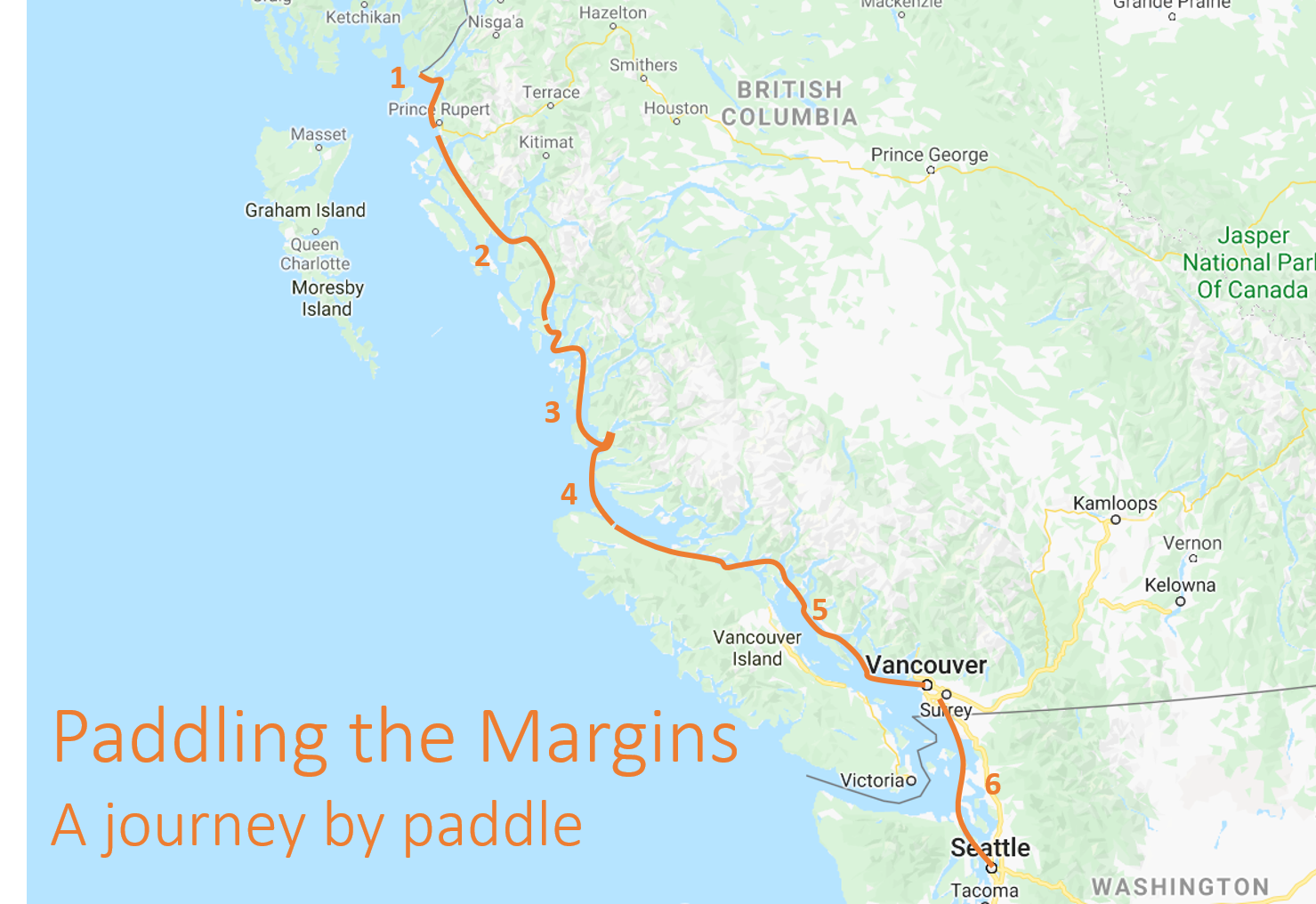Story
In 2021, I hope to with your support, paddle the length of the Canadian western seaboard, from Alaska to Seattle, investigating the experiences of marginal groups living at the edge of North American society and geography. The objective of the trip is to produce a set of short documentary films and articles looking at how these groups coexist with their environment at the frontier between the human and natural worlds.
This journey, and the films and writings which will come from it, will not aim to show a changing world or convince people of the growing threat of climate change and habitat destruction. I aim to look forward and discuss what next. Closer to the poles, at the margins of society where people and wilderness meet, the rate of climate change has been faster and more acute for much longer. By exploring this area we will have the opportunity to look beyond our current situation and, hopefully, find some answers, among those living alternative ways of life at the margins of society where the connection between nature and culture is much deeper. By talking to people from various groups with a stake in this coast, from indigenous communities to fishery owners, I hope that common threads may emerge, or at the very least light maybe shone on what is a complex set of competing, and sometimes contrary, needs and views.
Throughout my life I have experienced many different communities and ways of living: I was born in a housing cooperative, raised in a small sea-sprayed town in North Devon, studied at St Catherines College, Oxford and I have been living in South London for the last three years. I have always sought out different ways of living and different forms versions of the good life, one thing I have learned for certain is that the outdoors is always a fixture. From a young age I surfed, swam, walked and paddled the whole North Devon coastline, at 18 I paddled 2000km from Finland to Norway, by 21 I had walked from Sheffield to Fort William and crisscrossed England by foot and peddle. Now 25, I believe it is time for me to bring together my passion for the natural world and for the people who live with it through a journey to seek out a good life under threat. I plan to paddle 1500km down North America’s west coast, from the Alaskan to the American border, at a time when climate change and habitat destruction are fundamentally threatening the coastline and its communities. I hope to bring back stories and lessons of how to coexist with the environment from the people living at the margins of Canada and Canadian society.

Further details
I plan to meet, interview and spend time with people who have made this inhospitable part of the world home, who exist in an environment where the interplay between humans and nature is particularly evident. This region is one of the world’s richest natural habitats, both above and below the surface. Salmon, whales, oil, temperate rainforest – this coastline has it all, and all of these incredibly valuable resources are in a constant state of contestation and flux brought about by the role of humans. Some of these resources are affected directly, as with fishing, logging and mineral extraction, while others are indirectly impacted, most noticeably by climate change.
The disruptive dynamics I wish to investigate are not just those between humans and nature, but between humans themselves. I plan to visit First Nations groups along my route, hearing of the ways they coexist with other human groups and with the environment in their place and the challenges they face, new and old. Furthermore, this region has a thriving community of ‘frontier people’ individuals, families and communities who have moved to the area for its remoteness and to find a different way of life on the fringes of society. I aim to speak with them about their reasons for relocating and their experiences of their new home. Along with these groups, I will also speak to those running and working in fisheries, tourism and forestry in order to gain as broad a range of insights as possible into how people and place have come together in one of the world’s few remaining wildernesses.